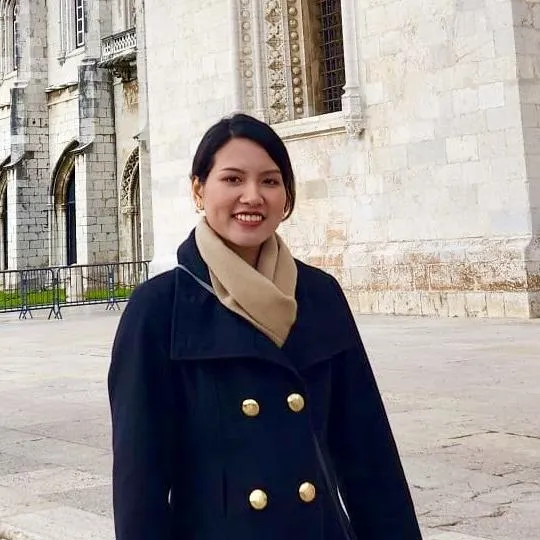
Biography
Vimuolea is a PhD student and Graduate Teaching Assistant in the Department of International Development at King's, interested in researching on welfare systems, inequality, political economy, gender, and debt.
She holds an MPA in Economic and Political Development from the School of International and Public Affairs (SIPA), Columbia University. There, she co-conducted a Capstone Workshop-Development Practice research with 5 other students, the Brookings Institution, and its partners to acquire an in-depth understanding of the Real-time Scaling Labs’ education pilots in Botswana, Côte d’Ivoire, and Tanzania, supported by the Millions Learning Initiative.
Vimuolea also holds a BA in Economics, minoring in Visual Arts and French from Macalester College, Minnesota. At King's, her research focuses on welfare systems in Cambodia vis-à-vis the informal sector, whilst also drawing on critical literature to examine the intersections of gender and debt.
Prior to joining King's she was an Economist at the Ministry of Economics and Finance, Cambodia, under the General Department of Policy: Fiscal and Macroeconomic Division and an Economic Policy Analyst, Supreme National Economic Council, Cambodia. She also had a stint interning at UNDP Cambodia, as a Junior Policy and Research Officer, Socio-economic team of the Policy Unit and at the Cambodian Children’s Fund NGO, Cambodia.
Research
Thesis title: 'Assessing the effectiveness of Cambodia’s National Social Protection Policy Framework in safeguarding the informal sector’s income-generation capacity'
Vimuolea's doctoral research aims to examine Cambodia's social protection system (NSPPF) with respect to informal sector groups, using the national socioeconomic survey, the Commitment to Equity approach, and qualitative methods. By analysing NSPPF in tandem with the tax system via empirical evidence, income generation capacity, the informal sector theoretical framework, and SPS's interlinkages with gender and credit, this research exhibits the channels through which different components of the informal sector's productive assets used to generate income are directly and/or indirectly affected. Ultimately, the objective is to examine relative gains of instituting a comprehensive social protection system to better accommodate vulnerable, informal sector groups.
A sequential mixed-method approach is employed, whereby qualitative methods will follow quantitative findings to triangulate causal channels on informal sector's IGC apropos Cambodia's SPS and to illuminate broader interlinkages. Quantitative method via Commitment to Equity (CEQ) analysis will be exploited to expound on redistributive power and efficacy of the current SPS and tax collection system, to conduct a cost and benefit analysis of instituting a comprehensive SPS jointly with the tax system, whilst also applying a gender perspective. Its results will be triangulated with qualitative methods, which entails desk research and key-informant interviews.
PhD supervision
- Principal supervisor: Dr Eduardo Ortiz-Juarez
- Secondary supervisor: Dr Nithya Natarajan
Further details
Research

Critical Global Capitalism Studies Collective
A collective bringing critical global capitalism research, teaching and activism at King's together under one umbrella to provide a forum for collaborations, events, and discussions, and to forge connections with the media, the policy world, and other like-minded groups.

Technology, Inequality, and Development research group
We are an interdisciplinary collective within the Department of International Development with two related concerns: the rise of AI and cutting-edge technologies and inequalities of income, wealth and power.
Research

Critical Global Capitalism Studies Collective
A collective bringing critical global capitalism research, teaching and activism at King's together under one umbrella to provide a forum for collaborations, events, and discussions, and to forge connections with the media, the policy world, and other like-minded groups.

Technology, Inequality, and Development research group
We are an interdisciplinary collective within the Department of International Development with two related concerns: the rise of AI and cutting-edge technologies and inequalities of income, wealth and power.
